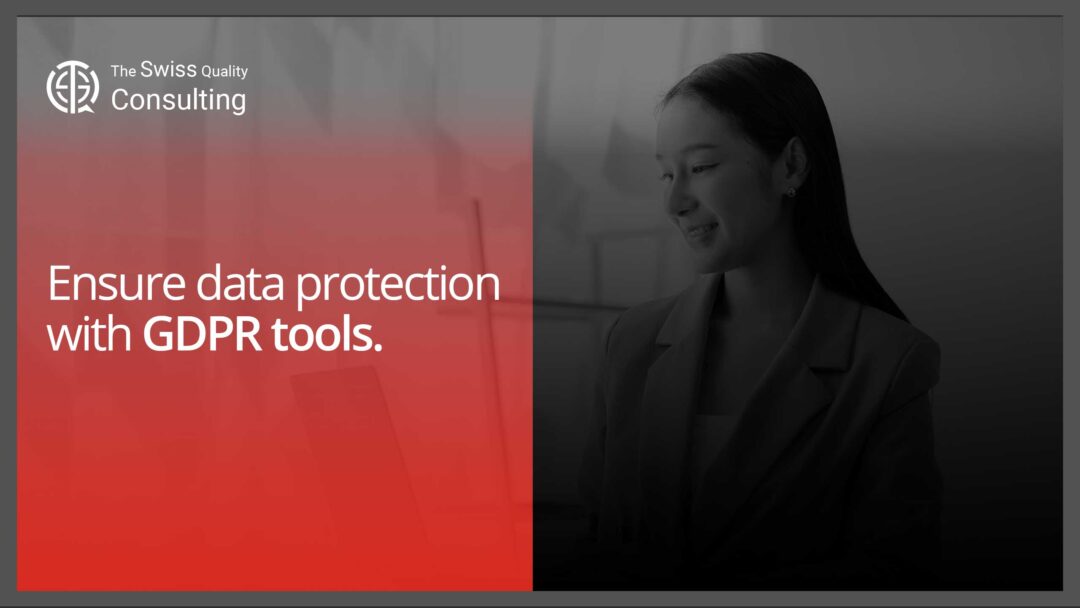The GDPR Landscape
In today’s digital age, data is the lifeblood of businesses, and safeguarding it has become paramount. From customer information to financial records, organizations rely heavily on data for decision-making, personalization, and improving overall efficiency. However, with great data comes great responsibility, which is why business executives, mid-level managers, and entrepreneurs must prioritize data protection by leveraging advanced GDPR tools. In an era where data breaches and privacy concerns are prevalent, these tools offer a proactive approach to ensure compliance and secure sensitive information.
One of the key regulations that has reshaped the landscape of data protection is the General Data Protection Regulation (GDPR). This European Union regulation, which came into effect in May 2018, has global implications for businesses that handle personal data. GDPR sets strict standards for data privacy, security, and consent, and failure to comply can result in hefty fines.
Why GDPR Compliance Matters
Ensuring GDPR compliance is not just a legal requirement; it’s a fundamental aspect of maintaining trust with your customers, partners, and stakeholders. Non-compliance can lead to reputational damage, financial penalties, and even legal action. To safeguard your business and its reputation, investing in GDPR tools is essential.
Understanding GDPR Tools
GDPR tools encompass a range of software, services, and practices designed to help businesses meet the requirements of the regulation. These tools assist in data protection, consent management, data access requests, breach notifications, and overall compliance. Let’s explore the key components of GDPR tools:
1. Data Mapping and Inventory
One of the initial steps toward GDPR compliance is understanding what data your organization collects, processes, and stores. GDPR tools can help you create a comprehensive data inventory, mapping out where your data resides, who has access to it, and how it’s used.
2. Consent Management
Under GDPR, individuals must provide clear and affirmative consent for their data to be processed. GDPR tools often include consent management features, allowing you to capture, record, and manage user consent effectively. This ensures transparency and accountability in data processing.
3. Data Encryption and Security
Security is a core principle of GDPR. Data encryption and security tools are essential for protecting data both at rest and in transit. These tools help safeguard sensitive information from unauthorized access or breaches.
4. Data Access Requests
GDPR grants individuals the right to access their personal data and request its deletion. GDPR tools can automate and streamline the process of handling data access requests, ensuring timely responses and compliance with the regulation.
5. Breach Detection and Notification
In the event of a data breach, GDPR mandates timely notification to both authorities and affected individuals. GDPR tools often include breach detection mechanisms to identify and respond to breaches promptly, minimizing the potential impact.
6. Privacy Impact Assessments (PIAs)
GDPR encourages organizations to conduct Privacy Impact Assessments to identify and mitigate privacy risks in data processing activities. GDPR tools may offer templates and workflows to facilitate PIAs and demonstrate compliance efforts.
Choosing the Right GDPR Tools
With a multitude of GDPR tools available, selecting the right ones for your business is crucial. Here are some factors to consider when choosing GDPR tools:
1. Scalability:
Ensure that the tools can accommodate your organization’s growth and evolving data protection needs.
2. Integration:
Look for tools that can seamlessly integrate with your existing IT infrastructure and systems.
3. User-Friendliness:
Opt for tools that are easy to use and offer intuitive interfaces, as they will be more accessible to your team.
4. Compliance Expertise:
Choose tools from reputable providers with expertise in data protection and GDPR compliance.
The Business Benefits of GDPR Compliance
While GDPR compliance may initially seem like a regulatory burden, it also presents business opportunities and advantages:
1. Enhanced Trust:
Demonstrating commitment to data protection builds trust with customers and partners, potentially leading to increased loyalty and business opportunities.
2. Competitive Advantage:
GDPR-compliant organizations may gain a competitive edge by aligning with best practices and appealing to privacy-conscious consumers.
3. Reduced Risk:
Compliance reduces the risk of costly fines, legal actions, and reputational damage associated with data breaches and non-compliance.
4. Improved Data Management:
GDPR compliance encourages organizations to adopt more robust data management practices, potentially improving operational efficiency.
Conclusion
In an era where data is a valuable asset and privacy concerns are paramount, GDPR compliance is not just a legal obligation; it’s a strategic imperative. GDPR tools play a pivotal role in helping businesses protect sensitive data, ensure transparency, and comply with regulations. By prioritizing GDPR compliance, business executives, mid-level managers, and entrepreneurs can safeguard their organizations, build trust, and thrive in the data-driven digital landscape.
#SEO Guidelines #DataProtection #GDPRCompliance #Privacy









